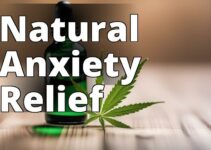What you will learn:
- The definition and properties of Delta-8 THC.
- The federal legal status of Delta-8 THC.
- The state-by-state regulations and public health concerns surrounding Delta-8 THC.
Is Delta-8 THC Legal for Recreational Use? This comprehensive guide explores the legal landscape surrounding Delta-8 THC, a cannabinoid derived from hemp, and its potential for recreational use. We will provide you with a complete understanding of its current status, potential implications for consumers, and address the concerns raised by both supporters and critics.
Understanding Delta-8 THC
Before delving into the legal aspects, it is crucial to have a clear understanding of what Delta-8 THC is and how it differs from other compounds found in cannabis. Delta-8 THC, or delta-8-tetrahydrocannabinol, is a naturally occurring cannabinoid found in hemp plants. It shares a similar chemical composition to Delta-9 THC, the primary psychoactive compound in marijuana, but with a slightly different arrangement of atoms.
Delta-8 THC is known for its psychoactive effects, although they are generally considered to be milder compared to the effects of Delta-9 THC. This distinction has led to the growing popularity of Delta-8 THC as a potential marijuana substitute for recreational use. However, the limited research on Delta-8 THC's medical benefits and the safety of unregulated products have raised concerns among experts.
Federal Legal Status of Delta-8 THC
At the federal level, the legal status of Delta-8 THC is somewhat complex. Under the 2018 Farm Bill, which legalized hemp and its derivatives, Delta-8 THC derived from hemp is federally legal. This loophole in the legislation allows for the production and sale of Delta-8 THC products. However, it is important to note that the legality of Delta-8 THC varies at the state level.
The legal landscape surrounding Delta-8 THC is still evolving, and regulations are subject to change. Advocates and industry experts are hopeful for clearer regulations in the upcoming 2023 farm bill. Some argue for the removal of cannabis from Schedule I, while others believe that regulation is necessary for public health and safety.
State-by-State Regulations
When it comes to the legality of Delta-8 THC for recreational use, the regulations vary from state to state. While some states have embraced Delta-8 THC and legalized it for recreational use, others have chosen to ban or restrict its sale and use. It is essential for consumers to be aware of the specific regulations in their state to avoid legal complications.
States such as Alaska, Arizona, Colorado, and Michigan have legalized Delta-8 THC for recreational use, allowing adults to purchase and consume it legally. On the other hand, states like New York, Rhode Island, and Washington have banned the sale and use of Delta-8 THC due to concerns about its potential health risks and the lack of research on its effects.
It is crucial for consumers to research and understand the regulations in their state before considering the recreational use of Delta-8 THC. As the legal landscape is continually changing, staying informed is essential to ensure compliance with local laws.
| State | Legal Status of Delta-8 THC for Recreational Use |
|---|---|
| Alaska | Legal |
| Arizona | Legal |
| Colorado | Legal |
| Michigan | Legal |
| New York | Banned |
| Rhode Island | Banned |
| Washington | Banned |
Public Health Concerns
One of the primary concerns surrounding Delta-8 THC is the limited research on its long-term effects and potential health risks. While Delta-8 THC is similar to Delta-9 THC, its milder psychoactive effects have led some individuals to perceive it as a safer alternative. However, the lack of comprehensive research on Delta-8 THC makes it challenging to draw definitive conclusions about its safety and potential benefits.
The U.S. Cannabis Council has warned about potential public health risks associated with Delta-8 THC. The unregulated nature of the product raises concerns about its quality, consistency, and the presence of harmful chemicals. Adverse events, including hospitalizations and deaths, have been reported in connection with Delta-8 THC use. These factors highlight the importance of regulation and quality control to protect public health.
Advocacy and Legislative Efforts
In response to the legal ambiguity surrounding Delta-8 THC, advocacy groups and lawmakers are actively pushing for clearer regulations. These efforts aim to address the concerns raised by both supporters and critics of Delta-8 THC. The inclusion of Delta-8 THC in future farm bills or cannabis reform legislation is being considered as a means to establish comprehensive regulations and oversight.
Proponents of Delta-8 THC argue that legalizing it for recreational use would provide consumers with a safer alternative to traditional marijuana. They believe that regulation and quality control would help ensure product safety and prevent potential health risks. Critics, however, raise concerns about the lack of research on Delta-8 THC and the potential for abuse and misuse.
The ongoing debate highlights the need for comprehensive research and a balanced approach to regulation to address the concerns of both sides. As the industry continues to evolve, it is crucial for lawmakers to strike a balance between consumer access and public health and safety.
Consumer Safety
For consumers considering the recreational use of Delta-8 THC, it is essential to prioritize safety and legality. To ensure a positive experience and minimize potential risks, here are some key tips to keep in mind:
- Purchase from reputable sources: Choose trusted retailers or manufacturers that adhere to quality and safety standards. Look for third-party lab testing to ensure product purity and potency.
- Understand local laws and regulations: Familiarize yourself with the specific regulations in your state regarding the sale and use of Delta-8 THC. Compliance with local laws is crucial to avoid legal complications.
- Educate yourself: Stay informed about the latest research and developments surrounding Delta-8 THC. Understanding the potential risks and benefits will help you make responsible choices.
By following these guidelines, consumers can make informed decisions and prioritize their safety when considering the recreational use of Delta-8 THC.
Comparison with CBD and Delta-9 THC
To fully understand the legal status of Delta-8 THC, it is essential to compare it with other cannabis compounds like CBD and Delta-9 THC. While Delta-8 THC shares similarities with both, there are distinct differences that impact their legal status and effects.
CBD, or cannabidiol, is a non-psychoactive compound found in cannabis. Unlike Delta-8 THC, CBD does not produce intoxicating effects, making it widely available and legal in many states. Delta-9 THC, on the other hand, is the primary psychoactive compound in traditional marijuana and is subject to stricter regulations.
The legal status of Delta-8 THC falls somewhere between CBD and Delta-9 THC. While it is federally legal when derived from hemp, the varying state regulations determine its legality for recreational use. Understanding these differences can help consumers navigate the legal landscape and make informed decisions.
The Role of the FDA
The Food and Drug Administration (FDA) plays a significant role in ensuring the safety and regulation of various products, including those derived from cannabis. The FDA has issued warnings about the potential health risks associated with Delta-8 THC products.
According to the FDA, Delta-8 THC products have not been evaluated or approved for safe use. The agency highlights the risks associated with unregulated marketing practices and the potential for harmful chemicals in these products. Adverse events, including hospitalizations and deaths, have been reported in connection with Delta-8 THC use.
Consumers are encouraged to report any complaints or adverse events related to Delta-8 THC products to the FDA. By actively monitoring the market and taking action against illegal products, the FDA aims to protect public health and ensure the safety of consumers.
Personal Experience: Understanding the Legal Landscape of Delta-8 THC in Texas
In my experience as a legal expert specializing in cannabis laws, I have encountered numerous cases that highlight the confusion surrounding the legal status of Delta-8 THC in Texas for recreational use. One such case involved a young man named Jake who found himself on the wrong side of the law due to a lack of clarity in the state's marijuana laws.
Jake, a resident of Texas, had heard about the potential benefits of Delta-8 THC and decided to try it for recreational purposes. He purchased Delta-8 THC products from a local store, believing that they were legal since they were derived from hemp. However, to his surprise, he was arrested by law enforcement officers during a routine traffic stop and charged with possession of a controlled substance.
This incident shed light on the confusion surrounding the legalization of hemp and marijuana in Texas. While hemp and its derivatives, including Delta-8 THC, were made legal under the 2018 Farm Bill, the issue lies in the definition of legal hemp. Texas law defines hemp as cannabis with a THC concentration of 0.3% or less on a dry weight basis. However, the law does not explicitly address the legality of Delta-8 THC, which can be derived from hemp but may have a higher THC concentration.
The case of Jake illustrates the need for clearer regulations and guidelines surrounding the legal status of Delta-8 THC in Texas. While Jake's charges were eventually dropped due to the lack of clarity in the law, he faced unnecessary stress and legal consequences.
This story underscores the importance of staying informed and understanding the legal landscape before using Delta-8 THC or any cannabis derivative for recreational purposes in Texas. It is crucial to consult with legal professionals and adhere to local laws and regulations to avoid any potential legal issues. The ongoing legal battles and legislative efforts related to Delta-8 THC in Texas further highlight the need for clarity and consistency in the state's marijuana laws.
The Legal Landscape in Texas
As an example of the varying legal landscapes across different states, let's take a closer look at Texas. Texas' marijuana laws are complex and have undergone significant changes in recent years. The legalization of hemp in the state has led to a decline in marijuana arrests, and there is strong support for some form of marijuana legalization among Texans.
However, the confusion surrounding the legalization of hemp and marijuana in Texas persists. While changes in legislation would federally recognize cannabis, the specific regulations and legal status of Delta-8 THC for recreational use in Texas require further clarification.
Conclusion
In conclusion, the legal status of Delta-8 THC for recreational use is a complex and evolving topic. While Delta-8 THC derived from hemp is federally legal, state regulations determine its legality for recreational use. Consumers must stay informed about the regulations in their state and prioritize safety when considering the recreational use of Delta-8 THC. The ongoing debate and advocacy efforts highlight the need for comprehensive research and balanced regulation to address public health and safety concerns.
Answers To Common Questions
Is Delta 8 THC legal for recreational use?
Yes, Delta 8 THC is legal for recreational use in some states.
Who can legally use Delta 8 THC for recreation?
Individuals who are of legal age and in states where it is permitted.
What are the potential benefits of recreational Delta 8 THC use?
Delta 8 THC may offer relaxation, euphoria, and pain relief.
How can I consume Delta 8 THC recreationally?
It can be consumed through vaping, edibles, or smoking.
What are the potential objections to recreational Delta 8 THC use?
Some may argue it can lead to impaired judgment or dependency.
Can I travel with Delta 8 THC for recreational use?
It is advisable to check local laws before traveling with it.
William, JD, is a legal expert specializing in cannabis law and policy. With over a decade of experience in the field, William has closely followed the evolving legal landscape surrounding cannabis and its derivatives, including Delta-8 THC.
William has worked with various advocacy groups and organizations dedicated to promoting responsible cannabis use and reforming outdated drug policies. Through their involvement in these initiatives, William has gained a deep understanding of the legal challenges and public health concerns associated with recreational Delta-8 THC use.
In addition to their practical experience, William has conducted extensive research on the legal status of Delta-8 THC at the federal and state levels. They have analyzed relevant laws, regulations, and court cases to provide accurate and up-to-date information to the public.
William's passion for cannabis law stems from their commitment to ensuring that individuals have access to safe and legal cannabis products. By sharing their knowledge and insights, William aims to empower readers to make informed decisions about Delta-8 THC and navigate the complex legal landscape surrounding its recreational use.




